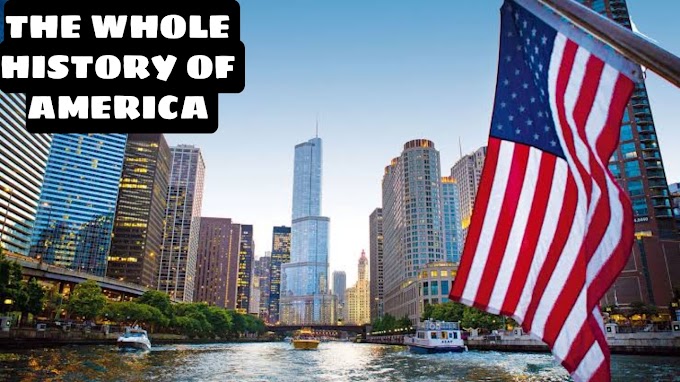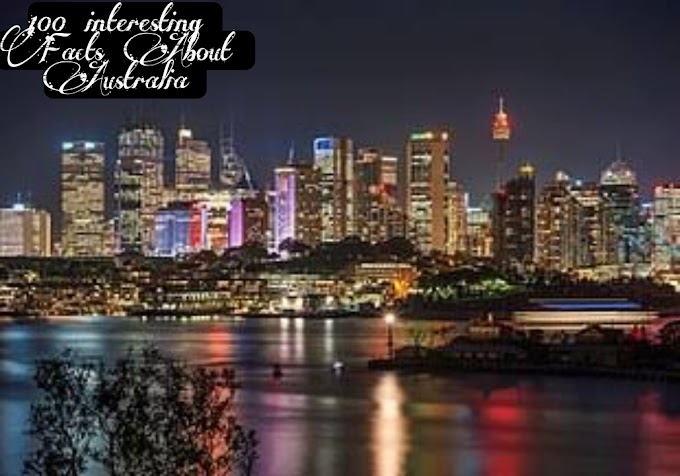THE WHOLE HISTORY OF SPAIN
Hello Friends:
Welcome to Countries Facts so Today I will show you the whole history of Spain so Spain a landmark by the scars of its past al an almost synonymous with empire having been under the yoke of so many foreign rulers that even they began to lose count a land whose very own empire would stand the test of time and dramatically changed the course of Mesoamerican history and yet somehow managed to avoid two world wars all this in Morin so you've probably heard that Spain was part of the Roman Empire but before they arrived the Iberian Peninsula riving civilizations most of whom were thoroughly supplanted by indo-european celts who had migrated south from france Greeks and the Phoenicians had sailed these waters for centuries setting up small trade cities and colonies the Carthaginians who were descendants of the Phoenicians themselves set up a large trade empire between 650 and 300 BC including parts of southern Spain before coming into conflict with the Romans who by the 3rd century were still a fledgling Republic just toying with the idea of conquering outside of Italy this all changed with the Punic Wars in which Rome came out on top with a slip victory over the Carthaginians leader Hannibal the people of Romans Fame became thoroughly romanized a process accelerated by immigration from other parts of the Empire Roman law religion and the language became thoroughly entrenched into society and culture because when in Rome I guess hispana fell to various Germanic and nomadic invaders in the 5th century competing for land and dominance the sweeti vandals and Alan's carved out short-lived kingdoms for themselves before being completely overrun by the Visigoths in 587 the Visigoths King Recker ed was converted from an Aryan Christian to a Roman Catholic with the rest of his kingdom soon to follow the Visigoths fought for power and control in the region with the Byzantines remnants of the old Roman Empire in the east and also got pushed out of most of southern Gaul by the Franks but they did manage to consolidate their hold on the whole of Iberia save for the boss region by the year 624 but Visigoths Spain was soon to be facing a new enemy 4,000 kilometres away in Medina where from 622 the birth of Islam began to spread through the conquest of Muhammed and the Russia didn't caliphate the Empire was further expanded into previously Byzantine Holdings in Africa with remarkable efficiency and speed under the Umayyad dynasty in 711 a berber army crossed the Straits of Gibraltar and conquered the fractured Visigoths slowly invading further north halted only by the defeat by the Franks at the Battle of Tor and the Spaniards at the Battle of Covadonga the Maya dynasties collapsed at the hands of the Abbasi allowed one Umayyad to claim the Spanish lands for himself first as the Emory and then the Caliphate of Cordoba also called the al-andalus it is around the 8th and 900s that a centuries long process called the Reconquista began in which Spanish Christians Ward against the Muslims with the goal of driving them out of Spain the Spaniards and the Portuguese saw the Muslims as outsiders both in culture and religion and very little integration happened between the two classes the Reconquista saw the Christian domains in the north increase in size and the southern Muslim Kingdom traction to the type of state until the almohads United them again in the 12th century now mo heads put what would be the last nail on Muslim Spain's coffin when they implemented a strict kill or convert decree throughout their domains causing a mass exodus of Jews and Christians from Cordoba into the northern christian kingdoms a crusade was led against the almohads from twelve twelve to twelve fifty by an alliance of Spanish kingdoms driving the Moors to a land known as the Granada Castile and Aragon - the most powerful Kingdom and Hispaniola United with the marriage of Ferdinand and Isabelle to create the kingdom of Spain which also conquered the last remnant of Muslim Granada and the BAS kingdom of Navarre around the same time an Italian sailor was bumping around from country to country seeking sponsorship for a voyage to the East Indies finally unmeaning Isabel and Ferdinand and after about two years of indecisiveness King Ferdinand agreed to fund Columbus's voyage in when she discovered the Americas if by discover do you mean after Viking life Ericsson and the people who already lived there the Spanish Empire in the Americas would change the world forever at first propelling Spain to superpower status but as soon would become evident the discovery of new lands and the building of an empire wasn't enough to occupy the minds of the Spanish crown and so turn their attention to religious hegemony first secreting the expulsion of Jews and soon followed by the Muslims the so called converter expel laws in Spain laid the foundations of the Spanish Inquisition because nobody expects the Spanish Inquisition this period of Spanish history is notoriously bloody even by European standards the hapsburgs had cemented their claim on Spain as soon as they could by marrying into the Spanish family the hapsburgs ruled over large swathes of Europe in a concerted and somewhat neurotic attempt to keep inheritance within the family and they were notorious for their high decree of inbreeding Habsburg Spain was also a political failure drowning an inflation from an influx of American raw materials constant warfare and piracy took its toll on the Empire which lost its early lead for dominance in Europe to France Britain and Russia the average lost their hold on Spain after the war Spanish succession in which a French house the House of Bourbon took over the Spanish crown during the Napoleonic Wars in the 19th century the Spanish army found themselves ill-prepared as they had funneled their entire war treasure unit preparation for a naval engagement with Britain its main economic rival the Spanish army was so soundly defeated by Napoleon that in the end they amounted to nothing more than unorganized skirmishes and guerrilla warfare Napoleon briefly had his brother crowned king of Spain but with his defeat in 1813 the monarchy was restored with rejection of the first Spanish Constitution this led to a turbulent time in Spain with revolutions and counter revolutions for the next half-century in 1873 the monarchy was abolished and the first Spanish Republic founded the Italian King they borrowed famously abdicating while declaring the spanish on governor bull but with the spanish-american war and the Cuban ten years war Spain became a shell of the Empire once was losing all its holdings in America and the Philippines with the outbreak of World War one Spain declared neutrality and experienced an economic boom stifled only by the Spanish flu and insurrections in Morocco the instability and lack of centralized control would eventually lead to the Spanish Civil War between competing factions of nationalist and Republicans who split the nation into the Civil War is a long and grueling topic that has such complex motives and ideologies not like those happening in the rest of Europe in the 1900s so complex in fact that deserves its own video which is why you should go to my friend over a feature history who has made just that Francisco Franco and his dictatorship which presided over the second world war created what we now call nationalist Spain an ideology not unlike fascist Italy and Nazi Germany conceding however the official neutrality of Spain during the war with his death in 1975 he decreed the restoration of the monarchy with full autocratic powers but was marred in King Juan Carlos's decision to seek a constitutional monarchy for the kingdom Spain joined the European Union in 1986 which helps stabilize the economy and industry in the new government the boom in tourism and economic growth in Spain were unprecedented at one point becoming Europe's fourth-largest economy this came to a grinding halt with the 2008 global recession which saw a property bubble burst in Spain in particular creating a devastating long-term economic hardship Spain also currently has a few other issues on its plate including a secessionist movement in Catalonia a historically distinct cultural region on the southeast and the European migrant crisis beginning in 2015 but modern Spain is still a haven of tourism with millions visiting each year as well as an important political entity in Western Europe working hard for industrial growth and slowly healing the wounds of its recent history thank you so much for watching everyone we will see you soon in the next Article Goodbye.

















